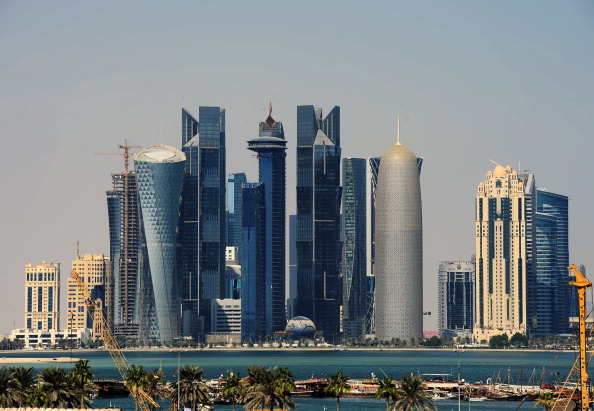Qatar “Will Not Bow To Pressure To Alter Foreign Policy”
Saudi Arabia, the UAE and Bahrain recalled their ambassadors from Qatar on Wednesday, saying Doha had failed to abide by an accord not to interfere in each others’ internal affairs.

Qatar will not bow to demands from three Gulf states to alter its foreign policy, sources close to its government said, suggesting Doha is unlikely to abandon support for Egypt’s Muslim Brotherhood and Syrian Islamists.
In an unprecedented move, Saudi Arabia, the United Arab Emirates (UAE) and Bahrain recalled their ambassadors from Qatar on Wednesday, saying Doha had failed to abide by an accord not to interfere in each others’ internal affairs.
Hours later Qatar’s cabinet voiced “regret and surprise” at the decision by the fellow-members of the six-nation Gulf Cooperation Council (GCC), but said Doha would not pull out its own envoys and that it remained committed to GCC security.
On Thursday, a source close to the Qatari government suggested Qatar would not comply.
“Qatar will not let go of its foreign policy, no matter what the pressures are. This is a matter of principles which we will stick to, no matter the price,” the source said.
The source also suggested Qatar would not stop its practice of playing host to members of the Muslim Brotherhood, including Youssef al-Qaradawi, an influential Sunni cleric and a vocal critic of authorities in Saudi Arabia and the UAE.
“Since the day Qatar was founded we decided to take this approach of always welcoming anyone who seeks refuge in our country, and no amount of pressure will make us kick these people out,” said the source close to the government.
A source at the foreign ministry said: “It’s the right of every sovereign state to have its own foreign policy.”
The source also suggested that Qatar had no differences with fellow Gulf Arab states on Gulf matters.
AIRTIME FOR PREACHER
The dispute “is more about differences in foreign policy approaches”, the source added, referring to issues in the Middle East such as the crises in Egypt and Syria.
Saudi Arabia and the UAE clearly do see Qatar as at odds with them on Gulf issues. They are fuming especially over Qatar’s support for the Brotherhood, an Islamist movement whose political ideology challenges the principle of dynastic rule.
They also resent the way Doha has sheltered Qaradawi and given him regular airtime on its pan-Arab satellite television channel Al Jazeera, and on Qatari state television.
The GCC, which normally keeps its disputes under wraps, is a pro-Western alliance of monarchies set up in the 1980s to counter Iranian influence in the Gulf, and includes several of the world’s biggest producers and exporters of oil and gas.
Qatar’s new emir, Sheikh Tamim bin Hamad al-Thani, who took over from his father in June last year, said Qatar would not “take direction” in foreign affairs, suggesting he would continue his father’s habit of pursuing policies at odds with those of most other GCC states.
He has yet to comment publicly on the latest ruckus.
Since the start of the Arab Spring, the tiny Gulf state has used its wealth to back Islamists throughout the Arab Spring revolutions in Tunisia, Libya, Egypt and Syria.
With ambitions to mediate in conflicts in the region, Qatar has been a welcoming host to members of the Brotherhood, other Islamist groups and the Afghan Taliban.
Al Jazeera says it is an independent news service giving a voice to everyone in the region.
